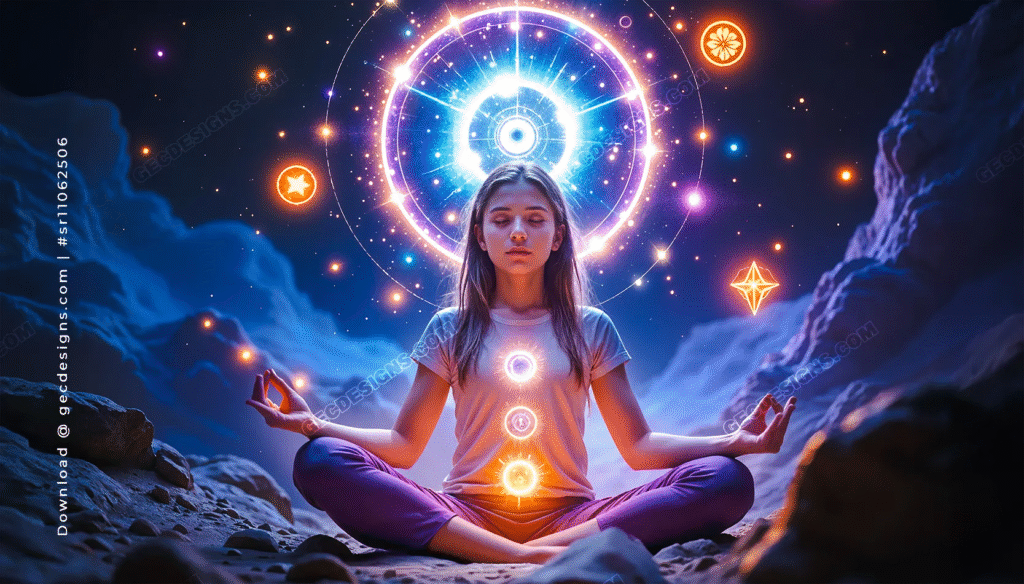Table of Contents
- Introduction to Clairvoyance
- Clairvoyant Meaning: Simple Definition
- Etymology and Historical Context
- Types of Clairvoyance
- Signs You May Be Clairvoyant
- Clairvoyance in Spirituality
- Clairvoyance and Psychology
- Famous Clairvoyants in History
- Clairvoyance in Pop Culture
- Clairvoyance vs. Intuition vs. Psychic Powers
- Real-Life Testimonials and Experiences
- How to Develop Clairvoyant Abilities
- Scientific and Skeptical Views
- Clairvoyance in Different Religions and Cultures
- Conclusion: Embracing or Questioning the Clairvoyant Gift
1. Introduction to Clairvoyance
Clairvoyance, derived from French, means “clear seeing.” It refers to the ability to gain information about an object, person, location, or physical event through extrasensory perception. This sense goes beyond the five physical senses and often manifests in visions or mental imagery.

2. Clairvoyant Meaning: Simple Definition
A clairvoyant is someone who claims to have the ability to perceive events or information outside the range of normal sensory contact. This could involve seeing visions of future events, past experiences, or hidden truths about people and places.
3. Etymology and Historical Context
The term was first used in the 17th century, combining the French words clair (clear) and voyant (seeing). Historically, clairvoyants were often labeled as witches, prophets, or spiritual guides. Cultures across the globe have acknowledged individuals with the supposed ability to foresee or sense things that others cannot.

4. Types of Clairvoyance
Clairvoyance is not a one-size-fits-all ability. There are several variations:
- Precognition: Seeing future events
- Retrocognition: Seeing past events
- Remote Viewing: Seeing distant or hidden places
- Aura Reading: Seeing the energy fields of people

5. Signs You May Be Clairvoyant
Many people don’t realize they may have clairvoyant abilities. Common signs include:
- Vivid dreams that come true
- Frequent deja vu experiences
- Visual flashes or symbols with no logical explanation
- Strong gut feelings that prove accurate
- Seeing colors or light around people (auras)
6. Clairvoyance in Spirituality
Spiritual traditions like Hinduism, Buddhism, and New Age beliefs see clairvoyance as a spiritual gift. It’s often linked with the third eye chakra, the center of intuition and inner sight.

7. Clairvoyance and Psychology
In psychology, clairvoyance is often grouped under the umbrella of extrasensory perception (ESP). While mainstream science remains skeptical, some parapsychologists study these abilities under controlled conditions.
Outer Link: Parapsychology Research
8. Famous Clairvoyants in History
Some well-known clairvoyants include:
- Nostradamus: French astrologer and prophet
- Edgar Cayce: American mystic known for medical readings
- Baba Vanga: Bulgarian mystic who predicted global events

9. Clairvoyance in Pop Culture
Movies, books, and TV shows often feature clairvoyants. From “The Sixth Sense” to characters in X-Men, this ability is portrayed in both heroic and eerie ways, fueling our fascination with the unseen.
10. Clairvoyance vs. Intuition vs. Psychic Powers
While often used interchangeably, these terms are different:
- Clairvoyance is visual perception beyond senses.
- Intuition is a gut feeling or inner knowing.
- Psychic powers is a broader category including telepathy, psychokinesis, etc.
11. Real-Life Testimonials and Experiences
Many people worldwide claim to have experienced clairvoyant episodes, from predicting accidents to sensing loved ones’ emotions across distances. While skeptics argue these are coincidences, believers point to the accuracy of such events.

12. How to Develop Clairvoyant Abilities
Some believe clairvoyance is a latent ability we all possess. Here’s how to cultivate it:
- Meditation: Clear your mind to receive visions
- Visualization exercises
- Journaling dreams and impressions
- Spending time in nature
- Energy healing like Reiki or Chakra work
Outer Link: Mindvalley’s Guide to Clairvoyance
13. Scientific and Skeptical Views
While science has not validated clairvoyance, numerous anecdotal accounts and experiments continue. Skeptics argue it’s due to coincidence, subconscious pattern recognition, or cognitive biases.
Outer Link: Skeptical Inquirer on Clairvoyance
14. Clairvoyance in Different Religions and Cultures
- Christianity: Views vary — some see it as a divine gift; others condemn it.
- Hinduism & Buddhism: Often integrated as spiritual capabilities.
- Indigenous Beliefs: Shamans and tribal healers are revered clairvoyants.
15. Conclusion: Embracing or Questioning the Clairvoyant Gift
Whether you believe clairvoyance is real or symbolic, its presence in human history and culture is undeniable. It continues to shape spiritual beliefs, inspire scientific curiosity, and stir the imagination.

Frequently Asked Questions (FAQs)
- Can anyone become clairvoyant?
- Is clairvoyance real or just a belief?
- Are clairvoyants the same as psychics?
Stay curious, stay open-minded, and remember: the unknown is often where discovery begins.
Explore More:
Visit our platforms:
🌐 Website: www.englishskillstudio.com
📘 Facebook: facebook.com/englishskillstudio
📸 Instagram: instagram.com/englishskillstudio
▶️ YouTube: youtube.com/@englishskillstudio
#Fortitude #WordOfTheDay #EnglishVocabulary #DailyWord #EnglishSkillStudio